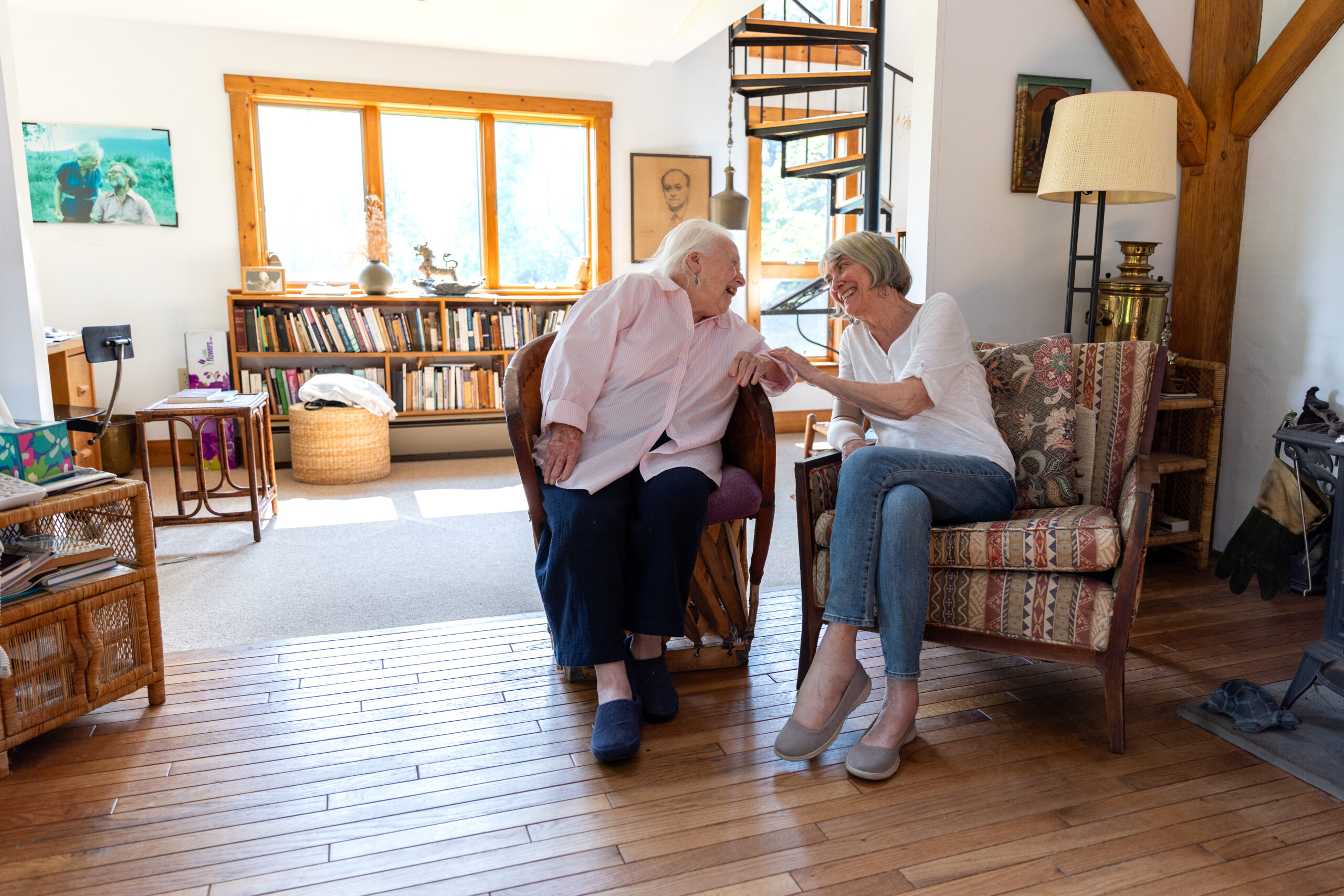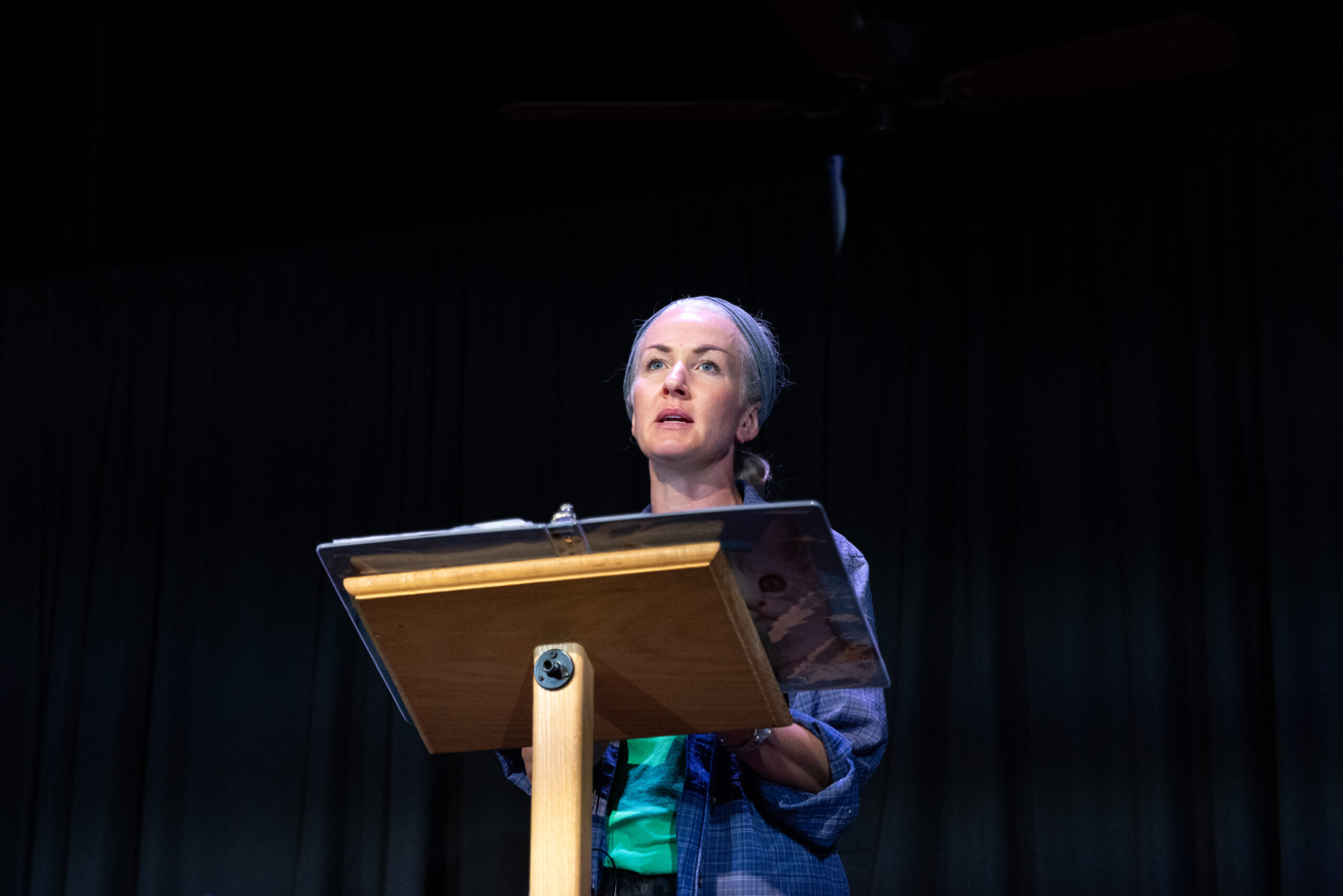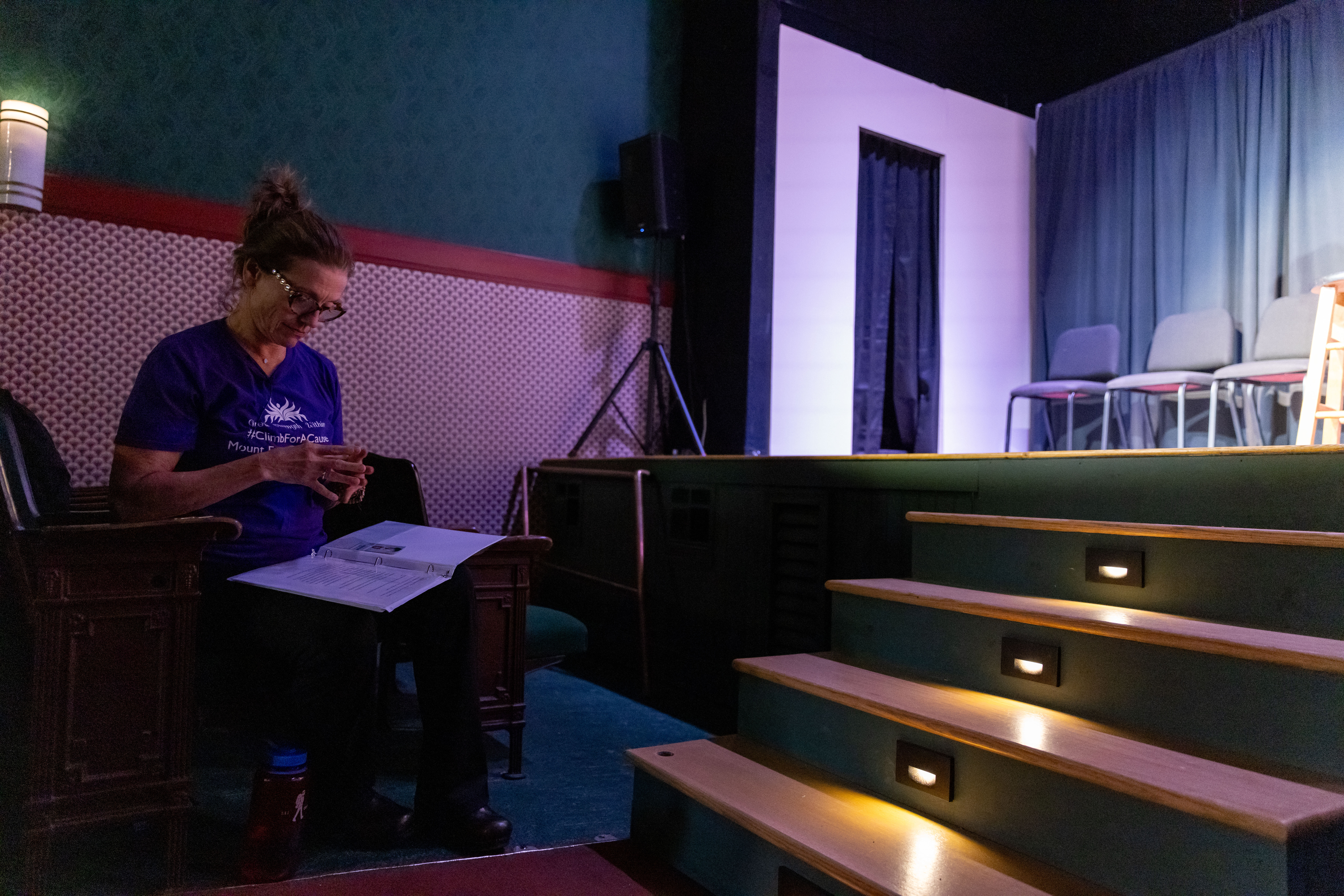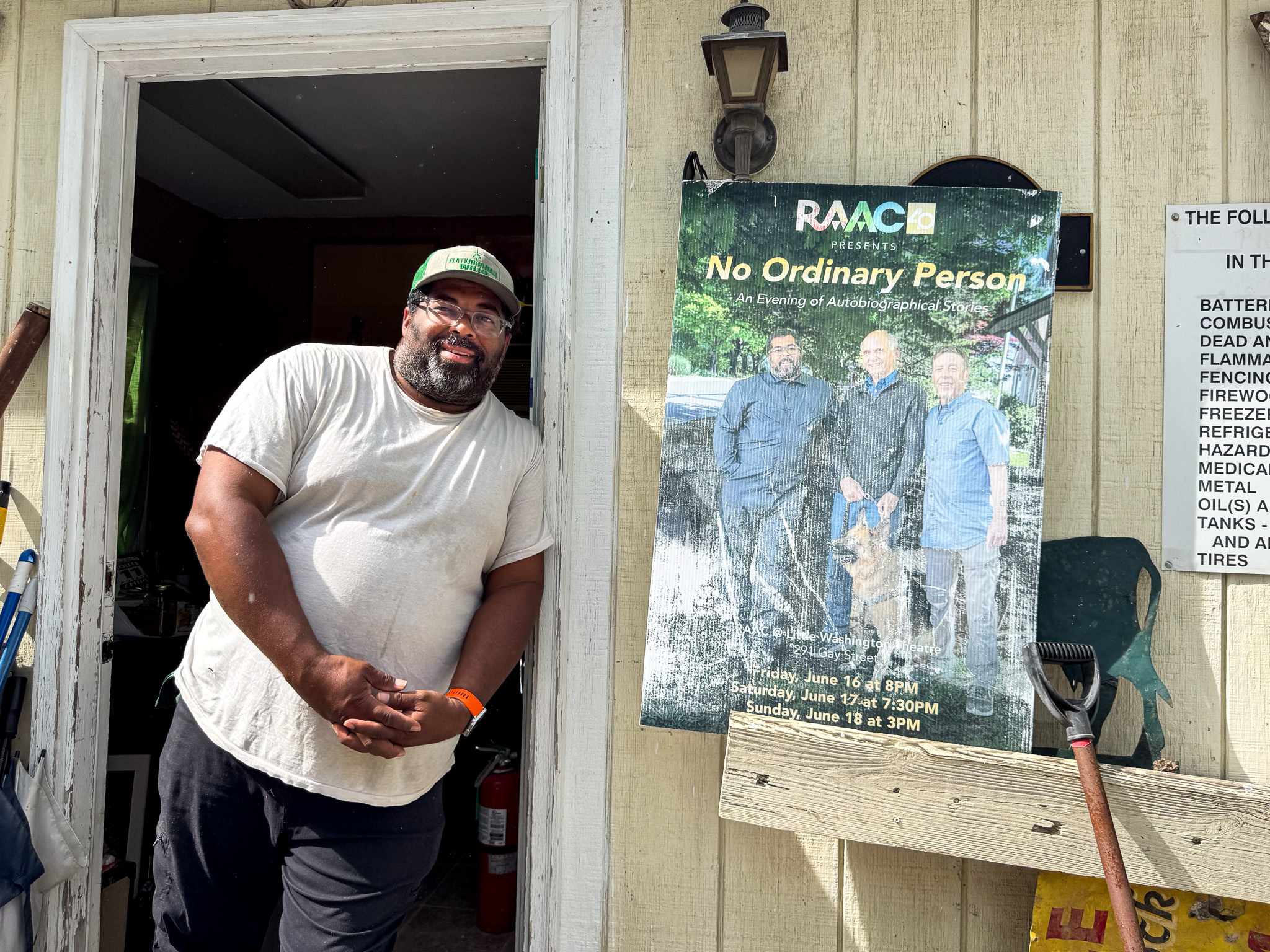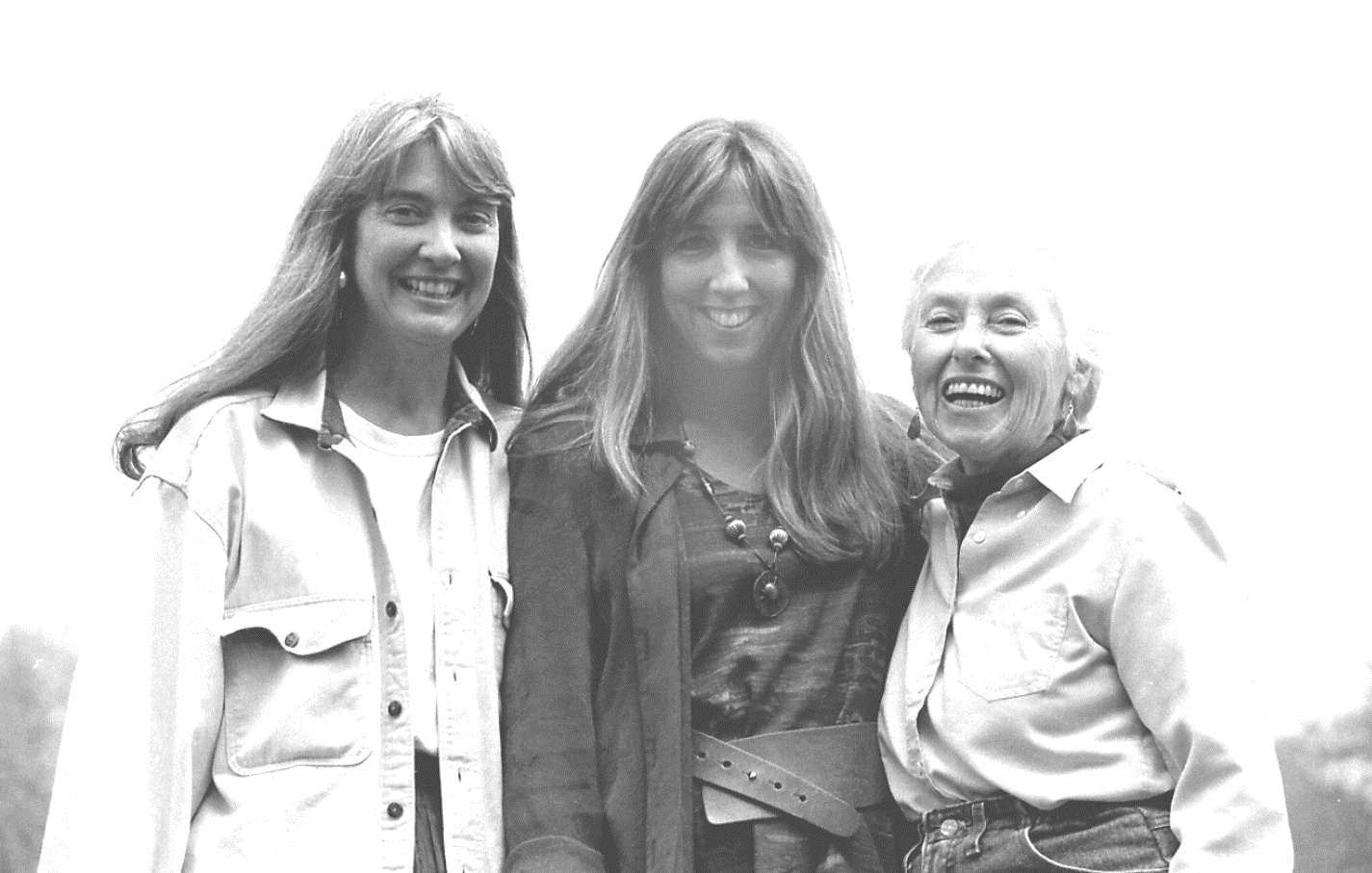‘Listening is an act of love’
We all tell stories … every day.
About what we had for lunch. About the guy who cut us off in traffic. About what our mom used to say when it rained. About a favorite childhood memory, and that one hilarious story we retell every chance we get.
But Sallie Morgan, a founder and co-director of No Ordinary Person, says sharing a story with your neighbors from the stage is a whole different ball game.
“A story isn’t really complete until it’s received by somebody,” Morgan said. “As soon as you’re on stage, man, you just feel like people are there with you, they’re really interested … I think the community building that happens there is unique.”
Since its inception in 1997, No Ordinary Person, an annual show that brings autobiographical stories to the stage, has given locals an outlet to share their most intimate, funny, personal and heartwarming stories.
The performance returns this weekend, on June 6 and 8, at the Little Washington Theatre, and will feature four storytellers — John Fox Sullivan, Lily Strange, Monica Kelly and Philip Ward.
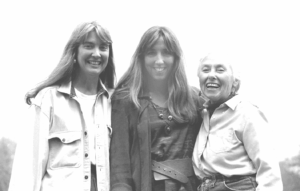
Morgan, Jean Elizabeth, and Abell at the first No Ordinary Person performance in 1997. (Photo/Ireland Hayes)
How storytelling event began
Morgan said the idea started with storytelling workshops in the 1990s, hosted by the late playwright and director Julie Portman, who would guide groups through sharing their experiences. The idea evolved from there, when Joyce Abell, now 100 years old, had the idea of bringing the workshop stories to the stage.
“Where the hell else would you do it than [on the stage]?” Abell said. “I thought we could get people really excited.”
In the beginning, the program was a Ki Theatre production, and in 2009, it moved to a partnership with the Rappahannock Association for Arts and Community (RAAC).
Abell, along with Morgan and Jean Elizabeth, were among the first storytellers in the No Ordinary Person model — each sharing a story about their grandparents. Abell went on to tell about a dozen stories from the No Ordinary Person stage. “I love performing,” Abell said.
Morgan and Abell later became coaches, helping others develop their stories, which Morgan still does today. The two have remained lifelong friends.
At 100 Abell may no longer be a coach or performer, but she keeps close ties to the institution. She coached her last storyteller seven years ago, but in 2023, her son, Crispin Sartwell, shared a story about Abell coming down with COVID-19 at age 97 in the depths of the pandemic, and Abell was right there with him on stage.
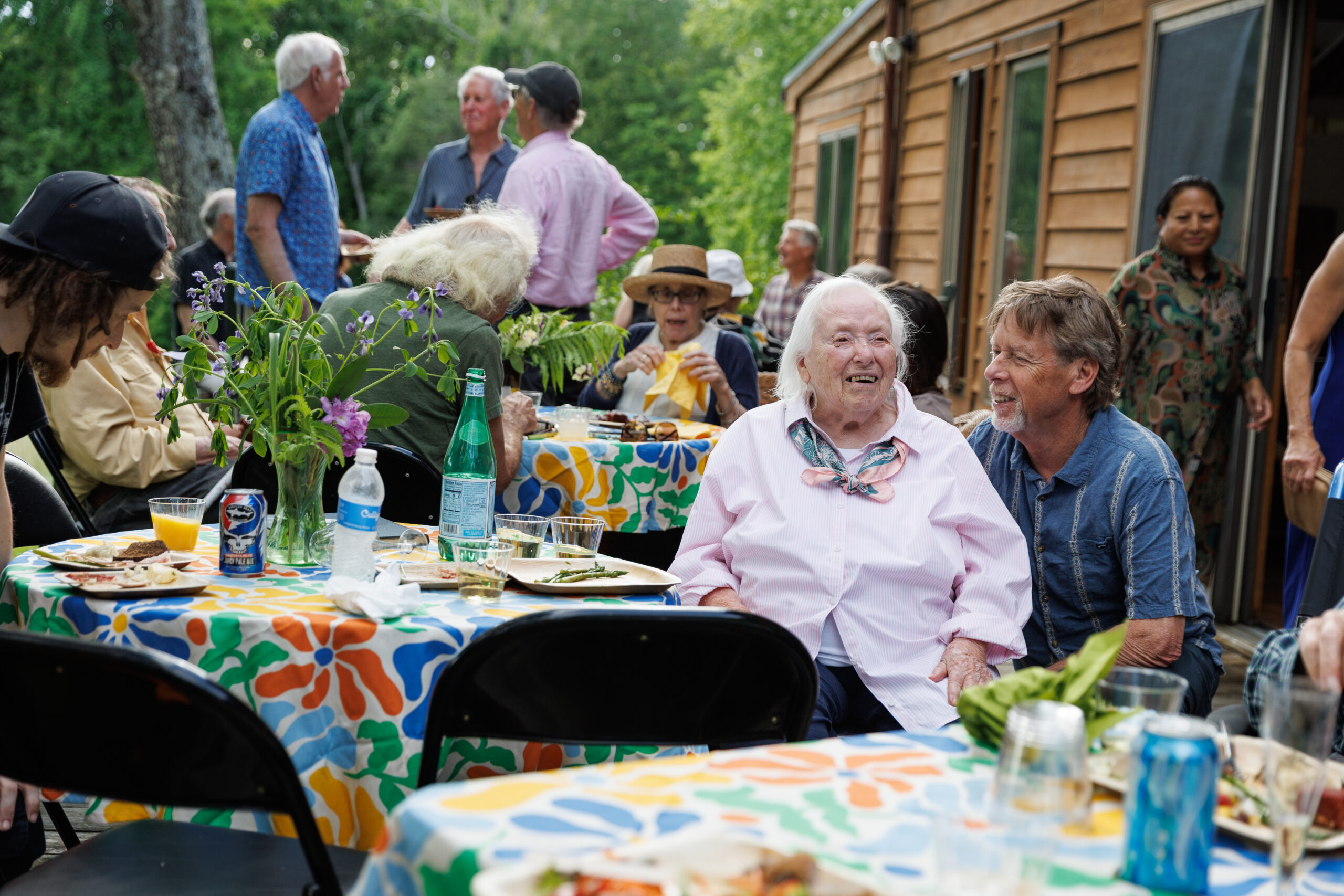
Joyce Abell with son Crispen Sartwell who said: “The way Joyce was at that party is the best of what she’s been for a hundred years and all the trials she’s recounted in her writings and onstage in No Ordinary Person, joyous with her friends and fully committed to life.” (Photo/Luke Christopher)
‘A lovely way of connecting with people’
The program has evolved over nearly three decades to include all kinds of stories, from a child’s-eye view of a river baptism and learning to live with a service dog, to choosing life in the wake of a horrific, life-changing accident.
Ten years after a bushhog took his left leg, Barney O’Meara walked up the steps of the Little Washington Theatre stage to share the harrowing tale. Not an avid public speaker, O’Meara said the experience was nerve-wracking. But he focused his sight on a quadrant of the pitch-black theater where he knew friends were sitting, and a calmness washed over him.
“It was closure in a way,” O’Meara said. “Sharing that, it helped kind of bring some peace … while I pretty quickly knew that [my disability] was permanent and life changing, forever, telling it reconfirmed being okay with that. And sharing that message with others, that we often don’t know what cards we’re going to be dealt, and we have a choice with what we do with it, helped reconfirm my choice.”
Before No Ordinary Person, Miranda Hope participated in one of Portman’s workshops, where she and about 20 other people “with seemingly nothing in common” gathered in a circle and shared their stories.
“I just really give it up to Julie Portman and her genius, because she started this. And she really was a genius,” she said.
Hope said the workshop was eye opening. Portman’s philosophy that sharing stories, and more importantly, listening to them, was an integral part of the human experience resonated with her.
“Listening is an act of love,” Hope said.
“Been heres and come heres, right and left and impoverished and wealthy, she put them in a circle and had them tell their stories. And this is how we get to know each other as humans,” she continued. “I’ll never forget the stories I heard in that circle.”
Hope shared a story from the No Ordinary Person stage in 2018, recounting a raw, vulnerable time in her life — the first six years of her nonverbal, self-injurious autistic son’s life and the enormous job raising a child is.
She had trained in the performing arts, but said she hadn’t anticipated just how healing the No Ordinary Person experience would be. Alone on stage, she shared details of some of her darkest days and of coping with motherhood, which she found to be more therapeutic than overwhelming.
“There’s shame around not being able to handle motherhood … but it’s just an enormous job, and I think it’s done sometimes in isolation. It was really helpful to get up in front of an audience and say, ‘this unbelievable, weird, painful, sometimes excruciating — sometimes unbearable — experience called motherhood happened to me,’” she said.

Storyteller Monica Kelly reads over her script before rehearsal on Tuesday night. She is sharing a story about trekking to Mount Everest base camp. (Photo/Ireland Hayes)
How to tell the story
Storytellers may be alone on stage, but they do not prepare alone. At the beginning of the process, each participant is assigned a coach who works with them for weeks, helping refine a written script for a live performance.
This year’s coaches include Morgan, Dick Raines and Edward and Lynn Dolnick.
If you live in Rappahannock County and don’t know Willie Shanks, odds are you’ve at least heard his name or heard of the stories he shares from the Flatwood Refuse and Recycling Center in Washington.
Shanks said he talks to people every day, and is very much an extrovert. But he would not have been able to share his experience of being “thrown in jail” 15 years ago in Prince William County, without guidance and help from his coach, Dick Raines, who recruited him to participate in 2023.
“It’s not as if you walk into this blindly, you have these great coaches that have all done this before, and they give you a sense of what you need to do, and they try to walk you through the steps,” Shanks said.
Once storytellers either come forward and volunteer, or are recruited by the organizers, they begin working on a draft script for review. They partner with a coach, and drafts are sent back and forth for several weeks, suggestions are made, and the story is refined to work well as a monologue. Coaches also work with performers on their stage presence and delivery.
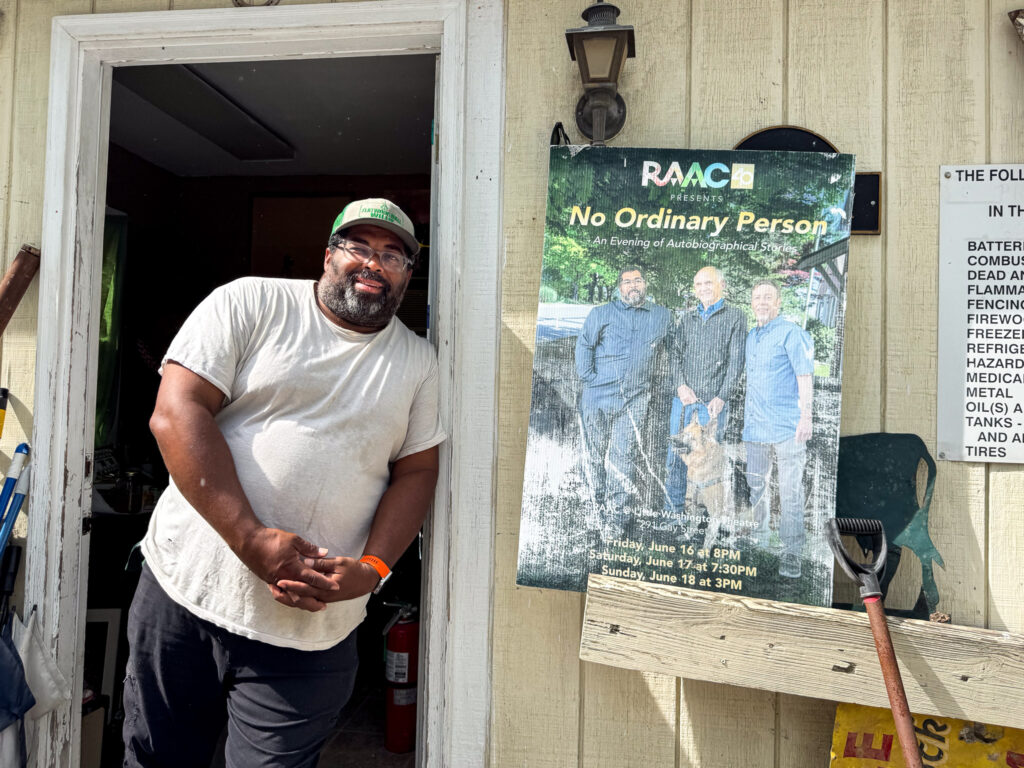
Shanks keeps a poster from the 2023 performance outside of his office at Flatwood. (Photo/Ireland Hayes)
Coach Lynn Dolnick goes deeper: “The written word is very different from the spoken word, so we’re translating that and … editing them, and helping people ask — ‘what’s the core of this story?”
Morgan says each coach has a unique style, but the process is very collaborative between storyteller and coach. An emphasis is placed on the story remaining true to the performer. “You want the story to be theirs,” she said.
Lily Strange said if she hadn’t met Raines at a cocktail party, she probably wouldn’t be telling her story this weekend.
“I didn’t know what I was getting myself into, honestly,” she said. “If I hadn’t been at that party, then I would have never met Dick Raines — pure coincidence — and I don’t think I would have sought this out necessarily on my own.”
Strange has little public speaking experience, and was hesitant to sign up. Raines and his wife, Nancy Raines, enthusiastically encouraged her after hearing her account of discovering “Crystal City” in Rappahannock, a discovery that Strange says helped her work through depression following a prolonged illness. Finally, she decided to push out of her comfort zone.
Strange also recruited help from family and her friend, Hope, asking her for advice and feedback from a No Ordinary Person alumna as she goes into the experience with little familiarity.
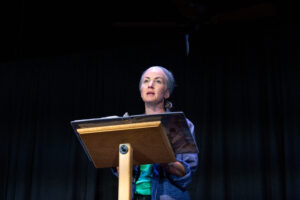
Lily Strange recites her story “Crystal City” at rehearsal Tuesday night. (Photo/Ireland Hayes)
“I know Lily pretty well, [but] I got to know her in such a different way through the story and through working on it [with her],” Hope said.
This rediscovery of people he thought he knew appeals to coach Ed Dolnick.“Often, even if you know the storyteller … it turns out, in the course of listening to these stories about how people came to be or what was important to them, you learned that you’d been missing a whole side of them,” he explained.
And the story continues
O’Meara said he encourages others in the community to participate, and the support he received during and after his performance was immense.
“It’s possible to get more than you give … often what people find is that there’s a lot for them to gain themselves,” he said. “Making one’s self vulnerable is a gift to others — and appreciated … I got a huge amount of positive feedback.”
Looking to the future, the Dolnicks said they hope to continue building a pipeline of people interested in sharing their stories. Edward Dolnick said they “take the title No Ordinary Person quite seriously,” and truly believe everyone has a story to share.
Morgan said she envisions multiple shows a year if enough people signed up, and hopes that more young people will share their stories. But whether it’s one show a year or multiple, the organizers expect hundreds more stories to come.
“We don’t picture running out of stories, or storytellers,” Edward Dolnick said.
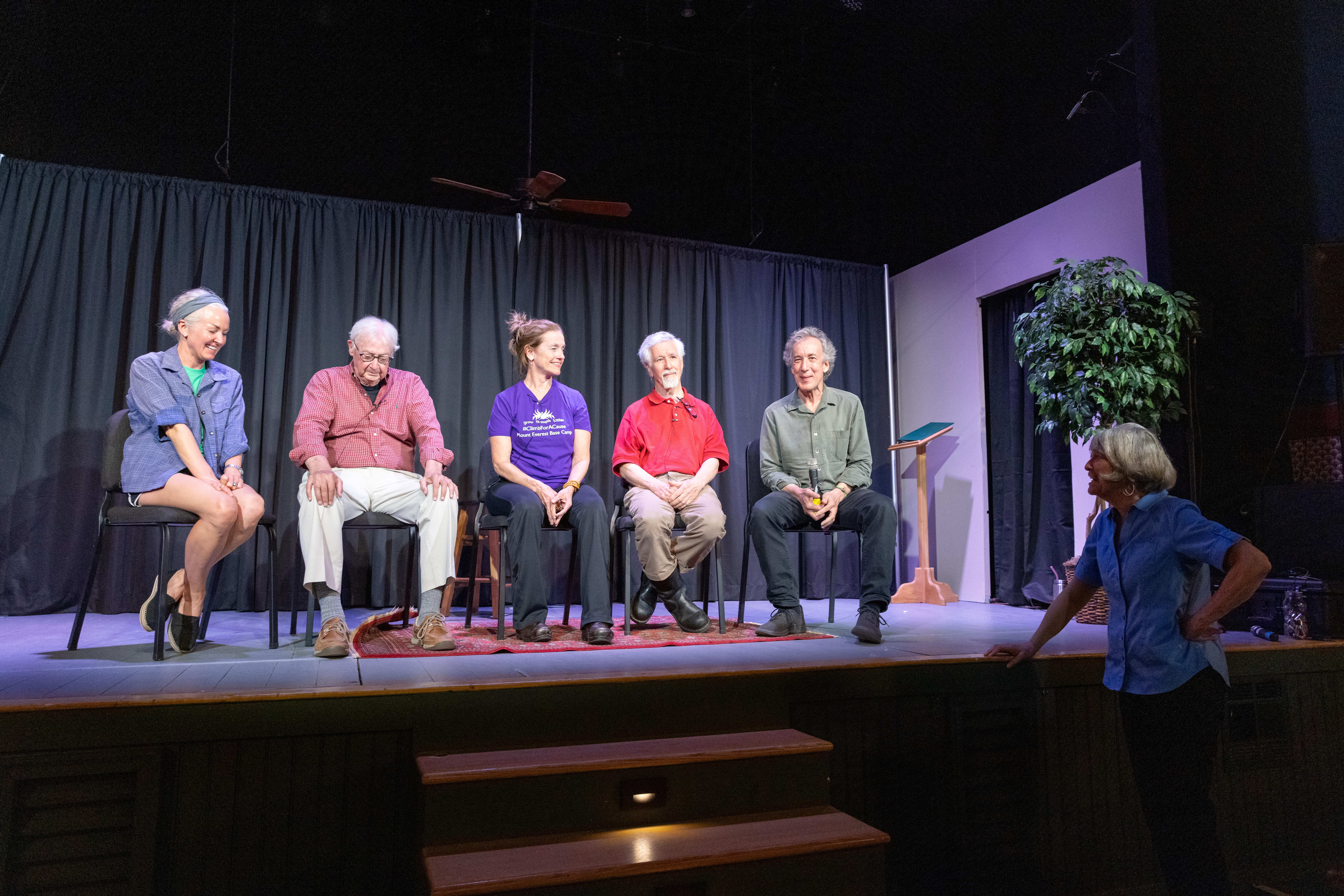
This year’s storytellers (from left) Lily Strange, John Fox Sullivan, Monica Kelly and Phillip Ward rehearsing with coach Edward Dolnick listening to feedback from Morgan. (Photo/Ireland Hayes)


